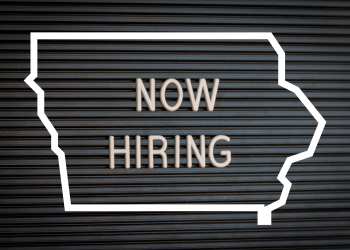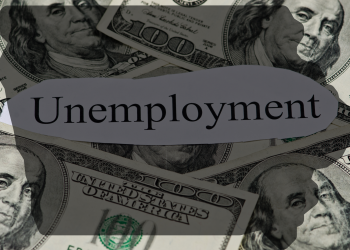(The Center Square) – With a gain of 2,000 jobs in November, leisure and hospitality was the most successful sector in Iowa last month, complementing its hiring success this past year, Iowa Workforce Development reported Friday.
Over the past year, leisure and hospitality has added the most jobs of any super sector (16,100), with 12,900 job gains in accommodations and food services.
Catch Des Moines President and CEO Greg Edwards told The Center Square in an emailed statement the report’s findings were a bit surprising since hotels, restaurants and other hospitality outlets still need employees. Still, the job increases signal the hospitality and leisure industry is beginning to bounce back, he said.
“Leisure travel and especially sporting and agriculture events have been our life blood during these trying times of COVID,” Edwards added.
Association of Nutrition & Foodservice Professionals Iowa Chapter Spokeswoman Barbara Thomsen told The Center Square in a phone interview Friday that the food services in correctional facilities, hospitals and health care settings aren’t seeing that success, despite offering “competitive” salaries, benefits and 401ks.
“We were hurting before the pandemic and we’re still hurting now for employees,” she said.
She said a key skill for working in the industry is empathy.
“It’s not for the faint of heart,” she said. “Not everybody likes working with the elderly [or] sick people.”
Thomsen said jobs in the industry are more career-oriented and typically associated with relevant degrees, such as culinary services. While restaurants are beginning to add more perks like 401ks, paid time off and medical benefits, those aren’t available at all restaurants. Most restaurants, however, offer more flexibility and opportunities to earn tips compared with food services, she said.
She encouraged people to continue patronizing “mom and pop” restaurants, ordering takeout, and visiting hospitals and retirement communities’ food courts. Visitors to centers help provide “a neighborhood feel” for seniors, benefiting their mental health, she said.
The nondurable goods factories sector gained 600 jobs in November while information services lost 400 jobs. Professional and business services advanced by 1,100 jobs. Most of that hiring was in administration support and waste management, contrasting with the October report of losses in these areas.
The health care and social assistance sector gained 700 jobs, while the construction sector gained 600 jobs, which was its first increase since July. Still, construction has suffered the loss of 1,600 jobs this year. The report said those losses could reflect high input costs, material shortages, or apprehension about investing in business upgrades or new projects.
Retail trade has gained 4,100 jobs in the past year, promoting gains of 4,500 in trade, transportation, and utilities. Education and health care services is up 3,500 jobs annually due to increased staffing in private education, the report said.
Overall, Iowa’s seasonally adjusted unemployment rate fell from 3.9% in October, with 64,800 unemployed Iowans, to 3.7% percent in November, with 61,600 unemployed Iowans. The total number of working Iowans rose to 1,599,300 in November, which was 3,100 more than October and 38,400 more than in November 2020, when the unemployment rate was 3.9%. The labor force participation rate remained at 66.8%. The state’s nonfarm employment in November was 1,539,900, up 30,900 from November 2020.
Total nonfarm employment in November dropped 1,000 jobs, primarily due to the strike at John Deere, Iowa Workforce Development Public Information Officer Jesse Dougherty told The Center Square in an emailed statement. December’s report will likely show a substantial rebound from factory workers returning to jobsites and affected durable goods factories.
Iowa’s Reemployment Case Management program begins the week of Jan. 9, the agency announced earlier this month. Career planners will meet weekly, individually with Iowans claiming unemployment to directly connect them with training and educational opportunities in high-demand careers. People who have received unemployment benefits for at least 13 weeks and the newly unemployed receive priority entry into the program. Jobless Iowans must complete at least four activities from a list of 12 each week to receive unemployment benefits. Failure to respond to Career Planners’ phone calls could lead to unemployment claims being frozen until proper information is provided.














